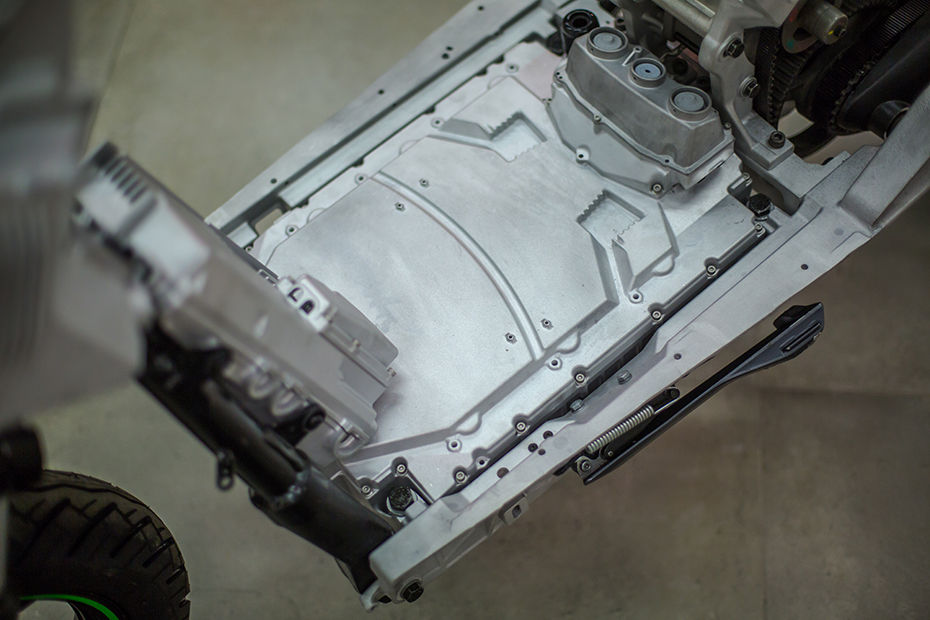
ZigWishlist: Ather 450X Pro Max And More Updates We Would Like To See
- May 16, 2022
- Views : 3830


Sustainability is key in today’s times. And this is the biggest USP of electric vehicles. Yes, running cost, incentives, and features are important too, but preserving the environment is much more crucial. With depleting fossil fuels and rising pollution levels, EVs seem to be the immediate solution to preserve the environment. But are they really green as they are perceived? We analyse:

The Green Bits
Now, we all know that unlike conventional ICE vehicles, EVs draw power from batteries, which essentially store electricity. As a consequence of not using fossil fuel, their carbon emissions are reduced to zero.
In a report shared by Ather Energy last year, the company revealed that between 2019 and 2020, its scooters single-handedly saved 7.5 metric tons of carbon dioxide, which is equivalent to the amount of CO2 produced by 15 years of riding an ICE scooter.

This, however, is offset (to a certain extent) by charging through power derived from thermal power plants, which usually use coal to generate electricity, thus contributing to air pollution. But according to Ather’s CEO, even after accounting for these things, the overall result is far better and still saves a lot of carbon dioxide. Also, in the coming future, renewable energy harvesting technologies including solar energy and hydroelectric plants will take over thermal power plants, which will further bring down the net CO2 production.
In related news, we had also taken a look into how Ather tries to keep its manufacturing plant eco-friendly. Read all about it here.

the automobile community
The Not-so Green Bits
While the end product i.e. the EV saves a lot of carbon dioxide, some of its parts actually contribute to other kinds of pollution.
Case in context, the batteries. You see, the most common kind of EV batteries are made of Lithium. And Lithium, like all other metals, comes from the ground.
It is extracted from hard rock mines and saline-rich areas such as brine pools and mineral springs. But mining Lithium is a several month-long complicated process involving evaporation and precipitation, not to mention incredibly huge amounts of water. This, in turn, contributes to water pollution, damage to the ecosystem, and surface water contamination.

With more and more manufacturers going the EV way, the need and use of Lithium has skyrocketed and will keep on doing so which, in turn, means more and more mining of an already limited resource.
Additionally, the disposal of Li-ion batteries isn’t as easy either. Simply throwing them away isn’t an option because they are inflammable and can cause damage to the surroundings. And the proper way to recycle dead batteries is via huge sophisticated recycling plants which, again, require a lot of resources like land, electricity, and water. Even after all this, only a limited amount of usable material is recycled.

The Final Word
Considering all these factors, in the end, it’s safe to say that EVs are green, but not 100 percent. The manufacturing process and electricity generation does generate different kinds of pollution but as EVs get more and more common, we believe manufacturers will find more viable solutions to the aforementioned problems.

ZigWishlist: Ather 450X Pro Max And More Updates We Would Like To See

Ather 450X Long-term Report 1 - 500km: How To Adapt?

EV Tech Simplified: Battery IP Ratings Explained

The 2025 Ather 450 Put Through An Insane Track Attack Challenge...

2025 Ather 450 Incoming: Here’s What It Could Be Capable Of

Ather 450 Apex, 450X and 450S Prices To Increase From January 1, 2025

Ather Energy Announces Festive Offers for the Ather 450X And Ather...

Ather Energy Developing Two New Platforms For Upcoming Electric Bikes...
 Honda Activa e
Honda Activa e
 Ola S1 Pro
Ola S1 Pro
 TVS iQube
TVS iQube
 Bajaj Chetak
Bajaj Chetak
 Ather 450X
Ather 450X
India's largest automotive community
 Ather 450X
Rs. 1.49 Lakh
Ather 450X
Rs. 1.49 Lakh
 Ather Rizta
Rs. 99,999
Ather Rizta
Rs. 99,999
 Ather 450S
Rs. 1.21 Lakh
Ather 450S
Rs. 1.21 Lakh
 Ather 450 Apex
Rs. 1.99 Lakh
Ather 450 Apex
Rs. 1.99 Lakh
 Mahindra BE 6
Rs. 18.90 Lakh
Mahindra BE 6
Rs. 18.90 Lakh
 Hyundai Creta Electric
Rs. 17.99 Lakh
Hyundai Creta Electric
Rs. 17.99 Lakh
 Mahindra XEV 9e
Rs. 21.90 Lakh
Mahindra XEV 9e
Rs. 21.90 Lakh
 MG Windsor EV
Rs. 13.99 Lakh
MG Windsor EV
Rs. 13.99 Lakh
 Vayve Mobility Eva
Rs. 3.25 Lakh
Vayve Mobility Eva
Rs. 3.25 Lakh